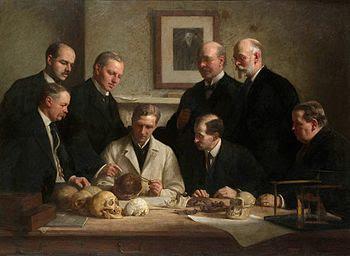"I’ve seen a trend that’s both interesting and troubling: If I find a hoax in my news feed, chances are it will have been shared by an evangelical Christian. I know that sounds like a terrible thing to say, but it’s true. In fact, it’s so typical and intriguing, that I’ve been keeping track of the phenomenon for quite a while." ...
The Christian message to the world isn’t, “Hey, look how bad things are!” It’s “take heart, He has overcome the world!” We don’t have to share every sensational and scary story—especially when their truth is suspect.The author above gives 4 good reasons to stop sharing those false stories, especially when checking them out to determine veracity takes only one second. One reason he didn't mention but Sunny Shell did, is that we should promote holiness. Holiness is marginalized to a great degree these days, yet is the primary function of Christians in the world. Our sanctification is the very pursuit of holiness, so that we can be more like Jesus every day.
Why should we be holy? Sunny Shell explains in this essay, The Way of Holiness
"Just as the honor of being assigned as an ambassador of an earthly country should not be taken lightly, so we also, who are in Christ, should not take our high calling as children of the Most High God lightly. An earthly ambassador is chosen to live in a foreign land to represent their country, while maintaining every attribute and character of their homeland. An ambassador does not lose or forget who he/she is merely because they live in another country for a time, rather, they honorably and proudly represent their country and their people."People have been tricked since the beginning. Hoaxes, forgeries, and spoofs are part of life. Think early last century circuses. Think: archeology. Archeology hoaxes have been fooling people for a long time. The Petrified Man in 1862 and the Cardiff Man in 1869 were especially blush-inducing hoaxes many people fell for. There's the Piltdown Man, (1912) War of the Worlds, (1938), and Paul McCartney is Dead hoax, (1969). Hoaxes have tricked the best of us. In some ways, the Facebook Hoaxes are a bit of a let-down in their clumsy way they try to fool us, compared to the ingenious hoaxes of the past. The Turk Chess Game fooled people for over 100 years and the Surgeon's Photo of the Loch Ness Monster fooled people for 60. At least those
We're all gullible. Christians, however, have the Holy Spirit is us, and so should be wiser and more careful when sharing information. Gossip is a sin, it's impugning someone's reputation. It's the same with hoaxes. They turn out to be untrue but the Company, Organization, or person they focus on has been maligned by your act of hastily sharing unvetted information.
Christians, please do your diligence. If you're not sure if something is a hoax and can't verify it one way or another, please do not press Enter.

Group portrait of the Piltdown skull being examined.
Back row (from left): F. O. Barlow, G. Elliot Smith, Charles Dawson,Arthur Smith Woodward. Front row: A S Underwood, Arthur Keith, W. P. Pycraft,
and Ray Lankester. Note the portrait ofCharles Darwin on the wall.
Painting by John Cooke, 1915. Wikipedia
--------------------------------
Further Reading
Best Historical Hoaxes
15 Internet Hoaxes that Fooled All of Us
Why Hoaxes fool us, according to science
